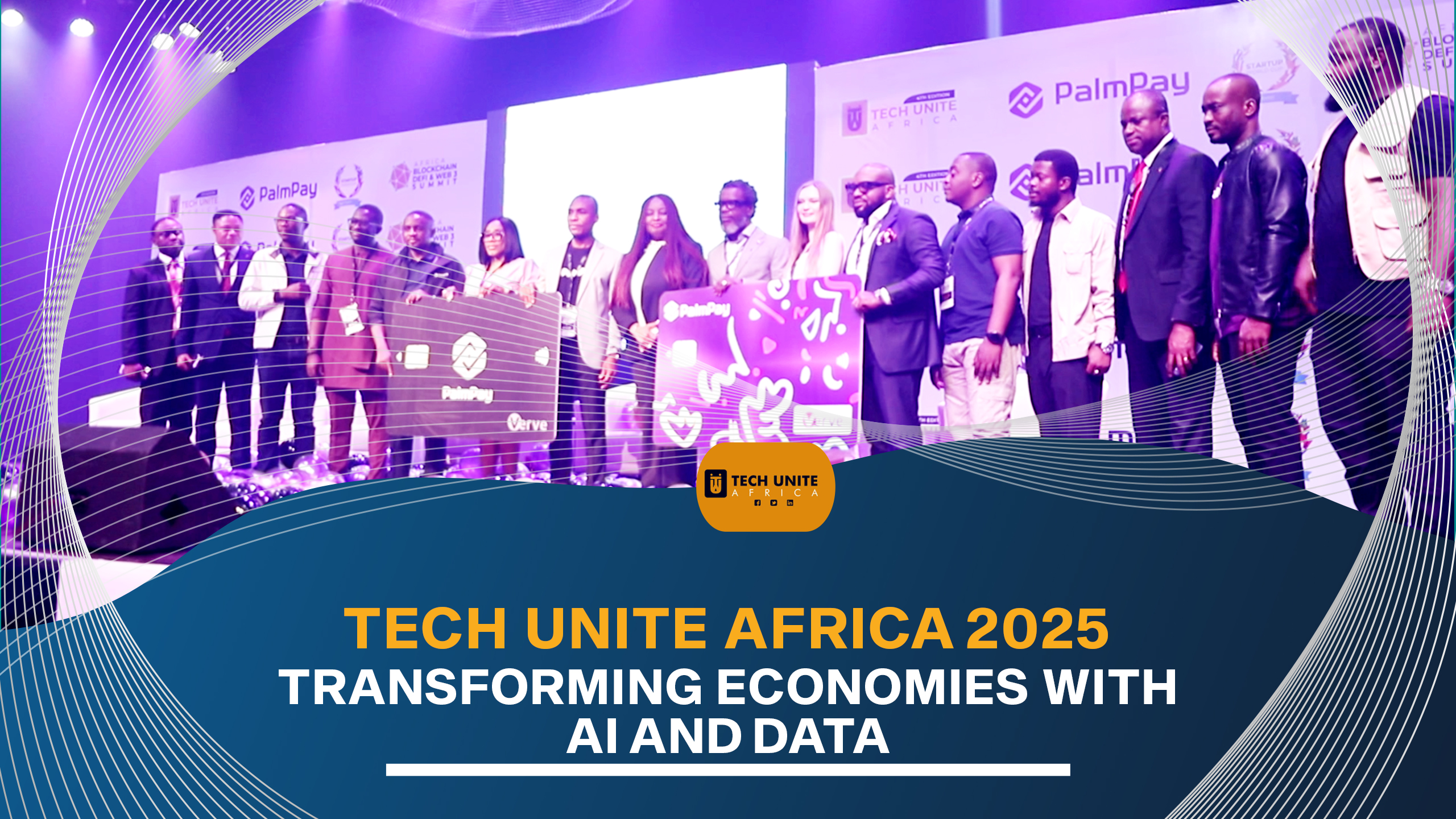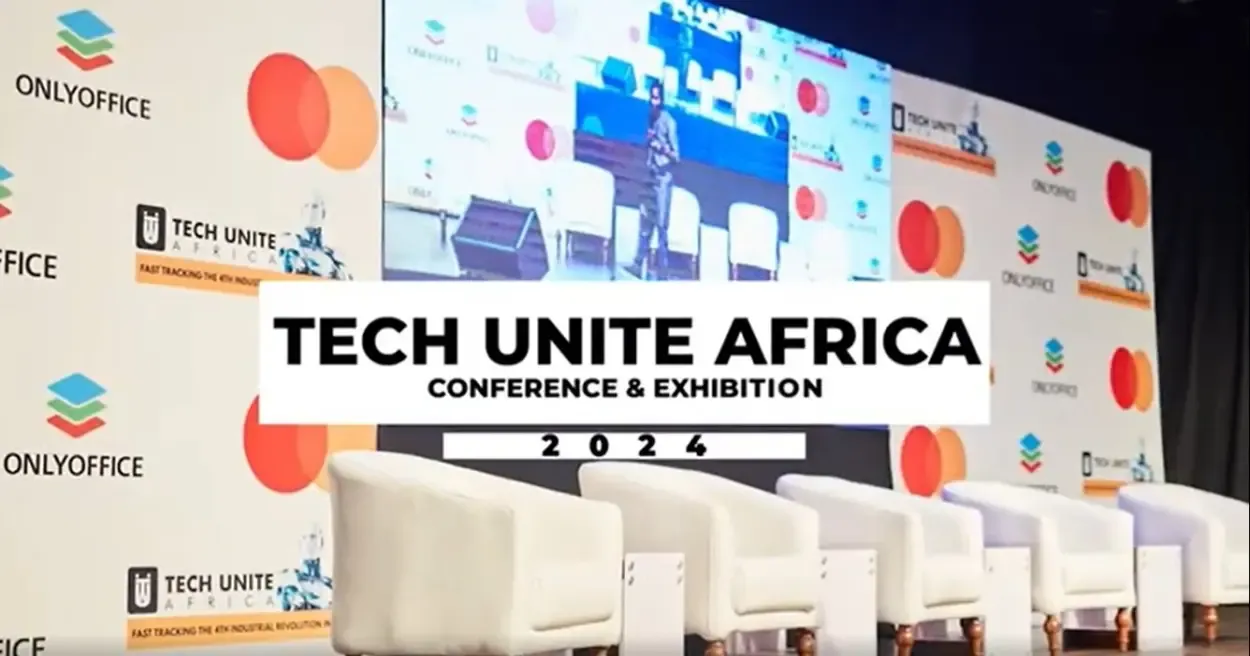Tech Unite Africa 2025 recently concluded its groundbreaking event, establishing itself as the African tech ecosystem’s premier conference, exhibition, and networking hub. The event, which included the second edition of the Startup World Cup Lagos Regional, the African Blockchain DeFi and Web3 Summit, and the Tech Innovation Recognition and Award, witnessed an unprecedented global turnout, exceeding the expectations of its organisers.
A multi-faceted event exceeds expectations
“What makes this one different is because it’s actually 4 in 1,” exclaimed Queeneth Clinton, one of the organisers, highlighting the unique convergence of the startup ecosystem, the tech world, and the blockchain community. The sheer volume of attendees, spanning various regions and continents, including the US, South Africa, and Kenya, underscored the global interest in Africa’s burgeoning tech scene.
Ethical AI implementation: Balancing innovation and responsibility
A significant focus of the conference was the ethical application of Artificial Intelligence (AI). Dr. Oyewole Sarunmi emphasised the critical role of skilled data scientists and AI engineers in mitigating bias within generative AI. He advocated for a “hybrid human artificial intelligence” approach, where AI serves as an augmentative tool under the guidance of human expertise. “Use AI as a crutch and not as something you depend upon completely,” he advised, stressing the need for trained professionals to identify and adjust algorithmic biases to ensure accurate and ethical outcomes.
The power of AI is intrinsically linked to data, and the exponential growth of data in recent years necessitates a robust infrastructure. Despite the rich content and enthusiastic audiences, connectivity challenges were apparent, highlighting infrastructure gaps. “Data is what AI itself thrives on,” noted a speaker, emphasising the need for a resilient power supply to support the massive data processing demands of AI technologies.
Bridging the Crypto education gap in Africa
Addressing the information gap surrounding cryptocurrency, a representative from Yellow Card outlined their multifaceted approach to crypto education. This includes roadshows, partnerships with universities, collaborations with influencers, and a multilingual online platform called Yellow Card Academy. Efforts are underway to translate educational content into languages like Swahili and French to cater to Nigeria’s diverse populace and overcome language barriers.
Simplifying Blockchain for mass adoption
Dr. Alessandra Sala from Shutterstock pinpointed the complexity of blockchain platforms as a major deterrent for new users. The high drop-off rate during the onboarding process, often due to complicated KYC procedures or a lack of understanding of bridging chains and wallet creation, necessitates a focus on simpler User Interface (UI) and User Experience (UX). Suggestions included social login features for automatic wallet creation and the integration of AI to guide users through the initial steps. “It’s really important for us to think about the end user,” Dr. Sala emphasised, advocating for intuitive design over intricate blockchain complexities.
Reliable payment systems: Catalyzing Nigeria’s digital economy
Sofia Zab, Chief Marketing Officer at PalmPay, addressed a critical issue of reliable payment systems for Nigeria’s Micro, Small, and Medium Enterprises (MSMEs), which contribute over 70% to Nigeria’s GDP. The historical unreliability of payment networks has led to a preference for cash transactions. PalmPay is tackling this by building its financial infrastructure, including payment orchestration and transaction monitoring systems, to enhance user experience and foster a shift from cash to digital payments.
AI and the future of work: Job creation outweighs displacement
Looking towards the future of work in the age of AI, a senior project manager, Oluwatoni Olugbenga, at Schneider Electric, expressed optimism, stating that AI will ultimately create more jobs than it displaces. The key lies in how individuals and organisations leverage AI for improved decision-making. The democratisation of AI, making it accessible even to those without a strong tech background through natural language interfaces, presents opportunities for widespread adoption and contribution to its development. Oluwatoni stated that the accuracy of AI outputs is contingent on the quality and quantity of data it receives, highlighting the collective responsibility to ensure AI’s effectiveness.
Techpression‘s Head of Content, Ibukun Bankole, engaged in an insightful discussion with Silas Omomehin from the Nigerian Content Development and Monitoring Board (NCDMB) on policy adoption for emerging technologies. The NCDMB pledged inclusive access to training, capacity building, and partnerships, with a deliberate effort to reach underserved areas across Nigeria through workshops and research initiatives. “Everyone is taking on board,” Omomehin assured, illustrating the commitment to hearing and addressing the needs of diverse communities.
Building trust in financial transactions: The foundation of economic growth
Mojisola Alabi underscored the fundamental role of trust in all financial transactions, both cash and digital. She highlighted the need for verification, security, and reliability to build confidence in digital payment systems. Trust extends to data security and adherence to agreed payment terms for lending platforms. Alabi also encouraged the customisation of foreign services to allow local subscriptions in Nigerian Naira, indicating a desire for solutions tailored to the local market.
Tech Unite Africa 2025 was a dynamic and insightful event, showcasing the immense potential and ongoing development within Africa’s tech landscape. The discussions around AI ethics, infrastructure needs, crypto education, user experience, and the future of work underscore the critical issues shaping the continent’s technological advancement. As the tech landscape continues to evolve, Tech Unite Africa is a vital platform for fostering innovation, collaboration, and growth across the continent.















